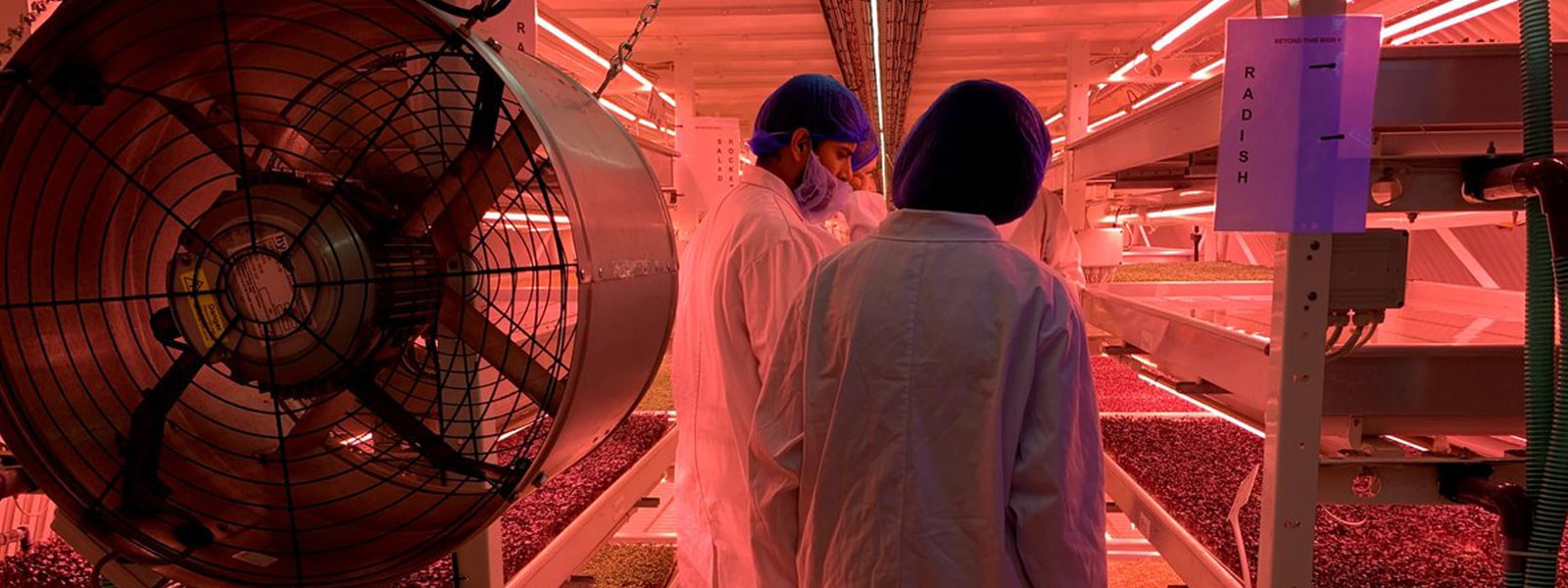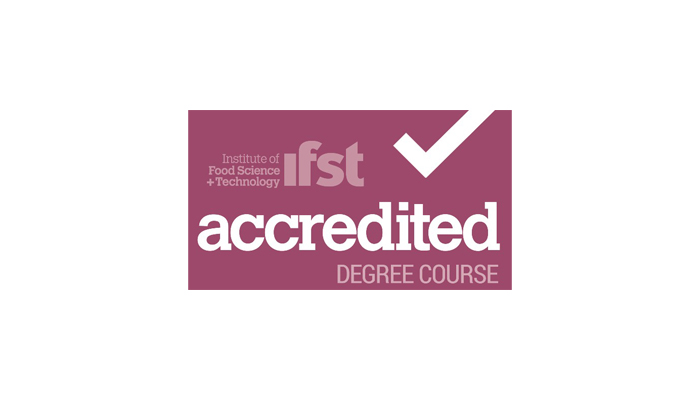Module Overview
This module typically covers the key fundamentals in advanced manufacturing within the food industry demanding strong operation skills coupled with an in-depth knowledge of food process unit operations, food preservation, food packaging systems, hygienic food machine design, food factory design, and food process engineering. Students are expected to gain understanding of the basis of advanced food manufacturing unit operations and their applications in the food industry incorporating how traditional processes are still prevalent with new designs and automation. The students may also gain an understanding of new and novel food production operations.
Module Overview
This module forms a significant element of the MSc Agri-food Technology (with Professional Practice) programme. It requires students to apply and contextualise their professional interests, research experience and skills development gained from attending taught modules in a live or near-live research project. Through the submission of a final dissertation and presentation of their research, students will demonstrate their ability to design and deliver a project that addresses an industry challenge as well as professional skills development.
Students following the Professional Practice pathway are expected to submit a portfolio which requires them to reflect on their research in a professional context, on how their skills have developed through the course of their study and identify opportunities for further skills development to prepare students for a career in the Agri-food sector. Where students engage in a place-based practical activity, they are expected to pay for their own travel, accommodation, and general living expenses while undertaking the project.
The option to undertake the Professional Practice route will be subject to students’ performance during the taught element of the programme and agreement from their tutor. Students will be expected to identify and secure their own project; however, support is available to students who may require it during this process. Through successfully completing the research project and portfolio, it is expected that students will have demonstrated a greater element of work readiness in preparation for their future career.
Module Overview
Agriculture and the food chain become more and more data-driven. Digitisation is the use of new and advanced technologies, integrated into one system, to enable farmers, wholesalers, food manufactures, and other stakeholders within the agri-food value chain. Digitalisation simulated by precision agriculture can be a key factor to solving problems in agriculture with regards to the environment, the working conditions, food security, and other public interests.
Module Overview
This module typically covers the key quality assurance and technical roles within the food industry with management skills coupled with knowledge of product safety, quality, and legality with a demonstration of attention to detail alongside good communication and interpersonal skills. Students are expected to consider how to define the 'technical standards' of a food manufacturing business, including a review of legislative requirements, necessary accreditation standards, customer expectations, and incorporation of a manufacturer’s own business requirements. Food industry enforcement bodies/government agencies and the business technical function interaction with such authorities will be considered, as will the role of product recall and crisis management systems during challenging circumstances.
Module Overview
This module examine global agri-food supply chain systems. Today's businesses operate in a global environment that requires agri-food enterprises to consider rest of the world in their competitive strategy analysis, despite of their market base or location. Businesses cannot isolate themselves or disregard external factors such as food safety, trends, competitive positions, or technology advancements in other countries. This change in trends, technologies, food safety, trade, and modernisation of transport infrastructures raised the importance of supply chain management to new levels. Agile management of supply chains is necessary to succeed in volatile demand situations experienced in many markets.
Module Overview
This module introduces students to the subject of agri-food engineering and, in particular, to the role of modern automation in developing sophisticated and efficient engineering systems to meet the ever increasing demand of the sector. After a brief introduction on industrial robotics and automation, a range of applications will be presented to investigate, analyse, and propose the use of robotics to automate pre-harvesting and post-harvesting operations in the agri-food sector. This might include the innovative Industry 4.0 model as an overall holistic framework to evaluate the impact of the proposed applications on the ‘Farm of the Future’.
Module Overview
The module content typically covers the aspects of food innovation, product and process development and investigates the impact of new technologies for the formulation of healthy nutritional foods. The student considers critique and appraise the way in which food manufacturers develop new products to reflect customer, consumer and other market driver demands. The module considers the new food product development areas linked to health, nutrition, sensory science and emerging technologies.
Module Overview
The module typically provides a review of current crop science and its contribution to large scale food production. This might include new technologies and their part in the future of sustainable crop production. The module considers key components of crop science as individual units through to interacting complexes. Throughout the module, the importance of the microbial interrelationship with plants is considered, covering both pathogens and beneficials. Students will be expected to independently evaluate the topics critically and develop skills leading to responsive and flexible use of crop science in the production of crops in a wide range of agronomic situations.
Module Overview
This module covers the fundamental skills and background knowledge that students need to undertake a research project, including: surveying literature; selecting and justifying a research topic; planning of research; academic writing, data collection, handling and analysis; and presentation and reporting of research.








